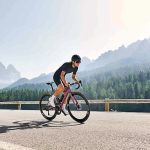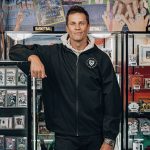K2 Inc. has their model in full swing as economies of scale and production efficiencies take hold to help their acquisitions deliver profits sooner than most expected. CEO Dick Heckman feels that K2 “laid the foundation for future growth” in 2003 after consuming and assimilating seven very diverse acquisitions. The company now claims to have the “#1 brand in five major sports categories”.
Heckman said Q4 was “the kind of quarter that puts the fun back into being CEO”. He is clearly having some fun here and it now appears to be contagious across the acquired companies.
The impact was readily apparent as net income for the fourth quarter of 2003 rose to $2.15 million, up 313% from $521,000 in the year-ago period. Sales for the quarter rose 52.8% to $193.8 million versus $127.7 million in Q4 2002.
Despite the dilutive nature of the numerous acquisitions during the year, EPS increased 133% to 7 cents a share from 3 cents in Q4 2002. The 2003 quarter had a one penny benefit from the sale of the light pole business. The sale also added 6 cents to the full year EPS results.
Full year earnings came in about 5 cents per share better that previous guidance, but still showed a decline for the year. Sales for full year 2003, excluding sales from acquisitions and the light pole division, were still up 8.0% to $592.1 million, versus full year 2002 sales of $549.4 million, excluding the light pole division.
K2 Sports, which includes the SnowSports, In-Line Skate and Bicycle categories, saw Q4 sales increase 24.7% to $72.2 million, which includes approximately $8.0 million from the WinterQuest acquisition, which includes the Tubbs and Atlas snowshoe brands, in late October. Without the WQ contribution, sales in the division would have still increased 10.9% for Q4.
Ski sales were said to be up 34% in Q4, and up 10% year-on-year. Heckman said that one in five skis sold in the U.S. this season were K2. Snowboard sales were up 19%, with the company characterizing the Ride brand as “on fire”. Margins have improved due to increased manufacturing efficiencies and fewer closeout sales.
Heckman said that K2 is now showing a ski line that has been completely re-tooled, marking the first time the entire line has been re-tooled.
Marine and Outdoor, which includes Shakespeare and Stearns, sales dipped 1.0% to of $60.5 million for the fourth quarter, from $61.1 million in Q4 2002, due primarily from the sale of the light pole business. Full year sales for the division actually increased 4.8% when excluding the light pole impact for both years.
Rawlings Team Sports, which also includes Worth, generated sales of $47.6 million in the fourth quarter, but has no comparisons to last year as Rawlings ran fiscal periods prior to the acquisition that do not match up to the calendar. Heckman said that the former Rawlings “sucked” at doing bats, but the former Worth management team, led by CEO Robert Parish, “knows how to do bats”. The division has already sold 30,000 units of the new Rawlings LiquidBat, a project they developed with LiquidMetal. He feels that Rawlings can really make a difference in this category.
Planet Earth, which Heckman again said was “on fire”, reported a 137.3% jump in Q4 sales to $8.2 million. Skate shoes and snowboard apparel are apparently the key drivers here. PacSun continues to point to the companys Adio brand as a key driver for their footwear business. Margins in this division have improved primarily due to higher sales volumes.
On the manufacturing front, KTO expects to produce 75% of its product in its own factories this year. They are already producing paintball guns in China and Rawlings and Worth bats are “in transition” to China. In logistics, Heckman said that they will see a $900 savings per container for Brass Eagle, due to their volume commitments to the shippers.
The company appears to be putting all the right elements in place to support the brands it acquires. One major initiative involves the new in-store merchandiser effort that K2 feels is critical to support the brands at retail. They currently have 22 people in the field calling on stores and doing inventory counts and expect to have 50 in the field by the first of May. The initiative is reportedly already seeing “tangible results”, but the company expects to see 15% to 20% sales growth in serviced stores. Heckman said the “big boxes are a challenge” but “we know whats going on at retail” many times before corporate does.
This effort, along with the ability to take on private label projects for a consolidating retail base is expected to strengthen the companys hand when negotiating product sales.
Heckman said that KTO is “finally going to have a big quarter here”, referring to the current fiscal first quarter, indicating that, “First quarter feels real good”. He expects to see the first same-store increase at Rawlings in “three to four years”.
KTO is estimating Q1 2004 diluted earnings per share of 25 cents, or $10.8 million in net income, on sales of approximately $250 million. The company earned a penny in the year-ago period on sales of $157.1 million and net income of $137,000.
The company sees “organic growth” of about 4% to 5% for the year, with growth coming in all divisions. Diluted earnings per share for the year are seen in the range of 80 cents to 82 cents on sales of $920 to $930 million.
KTO shares were off 5.9% for the week to close at $17.40 on Friday.
>>> The sophistication in which they are approaching the business will leave many others behind










